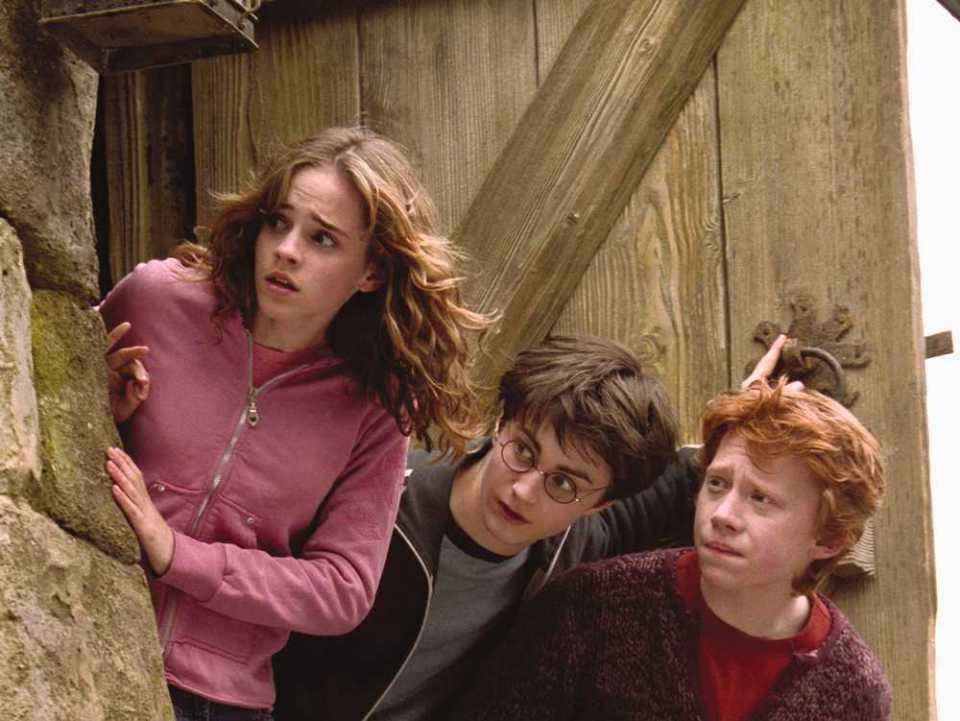Fantasy gets a bad rap. When it’s not referred to as escapist or mindless fluff, it’s criticized for being unrealistic, the province of dreamy teenagers (or adults) who don’t want to face the real world or deal with real life. But is that true?
SPOILER ALERT: Details about the stories of Frodo Baggins, Harry Potter, and Lyra Belacqua and how they end are included in the following article.
In The Lord of the Rings, the hobbit Frodo carries a dangerous magical ring to a distant volcano in order to destroy it and save his world from enslavement and destruction. He is willing to die if he must in order to defeat evil. Despite horrible odds and hardships, he eventually succeeds, but he doesn’t benefit from his actions. Wounded by a sword and psychologically scarred by the ring, Frodo finds that he has sacrificed his own life and happiness to make life better for the people and places he loves. If this were a fantasy in the pejorative meaning of the word, Frodo would be unaffected by the story, living happily with the hobbits who never left the Shire. He wouldn’t need to leave Middle Earth to be whole again.

What about Harry Potter? The seven-book series details a wizarding world that has captivated generations and has us all wanting to go to school, as long as it’s Hogwarts. But it also tells the story of an orphan boy, neglected and abused by the family he lives with, who continually stands up to defend others. The villain Voldemort, who is obsessed with living forever, must destroy Harry in order to live and he will stop at nothing to achieve immortality. The contrast of Harry’s love for others and his willingness to sacrifice himself for them is in direct contrast to Voldemort’s selfish goals. Voldemort is also a racist, considering muggles as disposable. Even wizards who don’t have “pure” magical blood are traitors in his opinion. Like Frodo, Harry must sacrifice himself and face his own death in order to save his friends.

Phillip Pullman’s His Dark Materials series is a fantasy set in an alternate reality. After reading about Lyra and her dæmon Pantalaimon, animal loving readers wanted a her dæmon of their own, and, like Harry Potter fans obsessing about their patronus, spent time wondering what form their adult dæmon would take. But there’s much more to this book as well. Here the villains, who could be considered well-intentioned since they are trying to rid the world of evil, sink to horrible depths in trying to achieve their ends. The machine they use to cut a dæmon from its human is actually destroying the person’s soul and removing the thing that makes them human, something many fear modern technology is doing in a slower, more subtle way.

What do these three have in common? Along with tackling huge life issues like sacrifice, happiness, selfishness, prejudice, racism, humanity, and freedom, these stories all stress the importance of loyalty, love and friendship.
You can’t get more real than that.
Do you find reality in your fantasy or do you consider it an escape? What important lessons have you learned from reading fantasy? What real-life topics does your favorite story tackle?


I love fantasy! Like superhero movies, fantasy is normally a collection of archetypes and an epic good vs evil battle, there is a reason the same themes crop up again and again.
Definitely true of high fantasy, and even some other kinds as well. I adored studying mythology in school, so I guess it makes sense I like fantasy. Also, I was taught that mythology was intended to explain the world around us, and fantasy does that, too, in the same sort of metaphorical way.
I’ve sometimes seen fantasy not as an escape from reality but an escape to reality. Modern life can be so detached and artificial that stories that deals with important moral and social issues can be a fantastic remedy and a good way of engaging with the world in a more real and considered way.
I have more thinking to do on this issue, not because I don’t believe in the value of good fantasy stories, but because I feel like I still haven’t quite figured out what makes them so powerful and important to me. I know they provide us with a new way of looking at moral and social issues, and also remove the “preachy” problem, because the situations are removed from our reality and so we don’t take the messages personally, though with any luck, we do get the point.
I’d be really interested to see what you discover on that front!